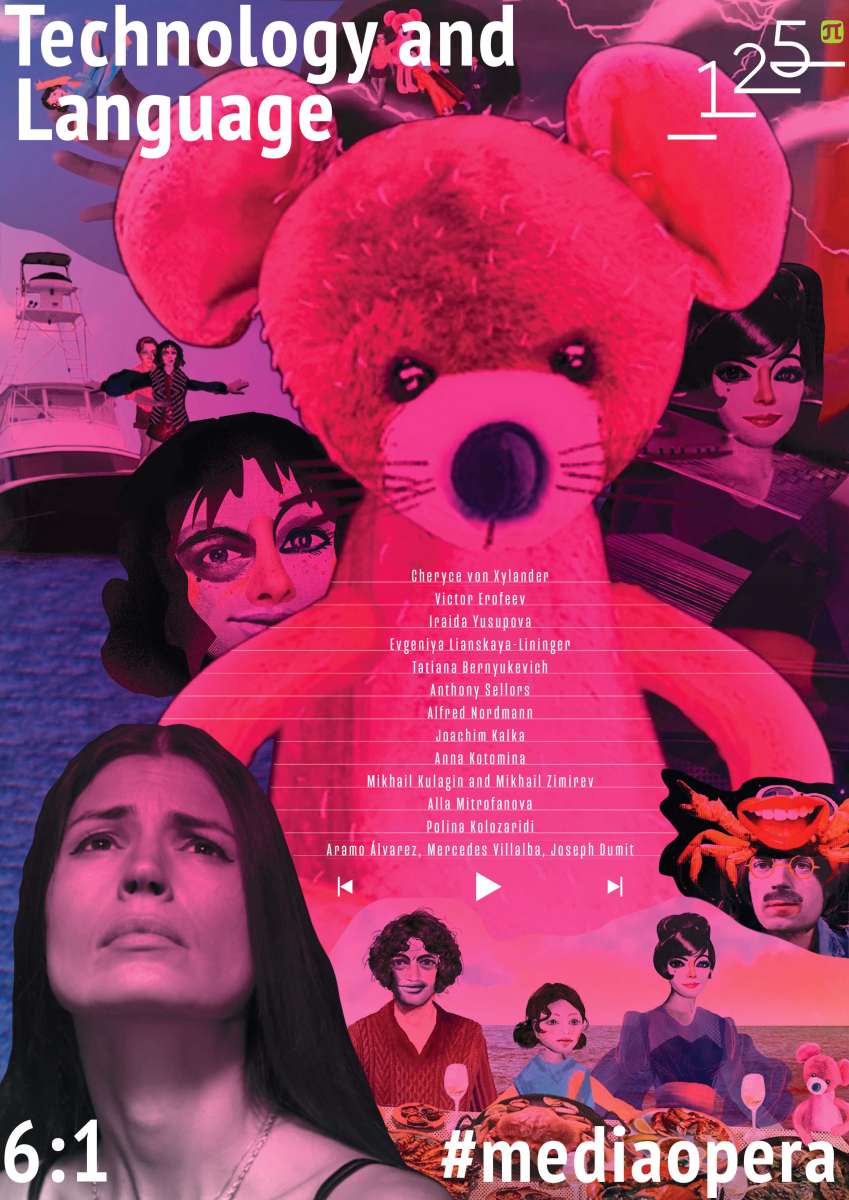Recombinant Agency. Divine Comedy Meets Upcycled Comics Art in Pink Mouse, a Meta-Mediaopera
A prose poem adapted to the ›mediaopera‹ format as interpreted by participant spectating – this paper reflects on metric composition in generative fields of practice across varied technological modalities. It seeks to characterise workings of ›agency‹, conceived in both embodied-human and disembodied-machinic terms. Pink Mouse (2017) has been translated by composer Iraida Yusupova into a pictorializing aural-optical digital idiom. The resulting artwork can be read as meta-mediaopera in that it affords opportunity to explore form-theoretical features of the genre it instantiates. Besides being an object lesson in how to interpret virtual artwork, this interpretative exercise also addresses a more general challenge of pressing urgency in the post-pandemic era, namely how to extract sensual order from the virtual noise of online communications. The metrics in play in this case study encompass lyrical, graphical, and social articulation, i.e. cadences seemingly inflected by intentionality. Except metric inflection no longer vouches for subjective cogency. Now that reflexivity has taken an instrumental turn, we essentialize agency as an expression of purposiveness, be it immaterial or material, at our peril. This paper attempts to decipher agency by recourse to an objective ground of material practices rooted in constructive semiosis – here dubbed ›recombinant agency.‹ This concept takes agency to be emergent patterning made up of myriad vectors of functionality, merged in tool-use, bound by inculcated social context. Factored together, these parts yield a whole in the moving target of felt lucidity. Yusupova’s mediaopera holds agency to be irreducibly human. She upholds an analogue sense of cultural reproduction within the extant, digital logics of cultural annexation. Yet, a participant spectator, viewing Pink Mouse online, might well reckon that the piece strikes a more speculative chord, perhaps inadvertently, that preferably can enlist users, facing inexorable automation, in the service of creative autonomy.



